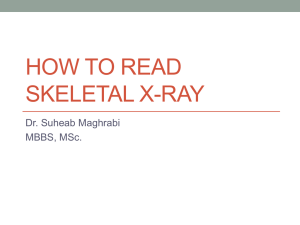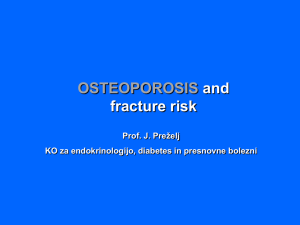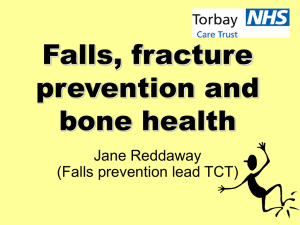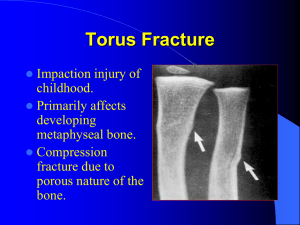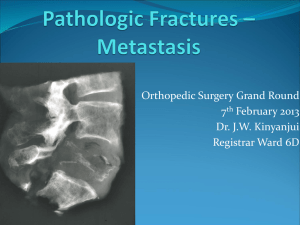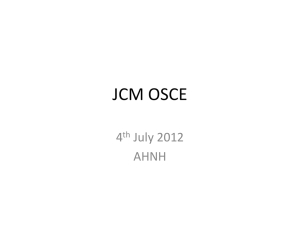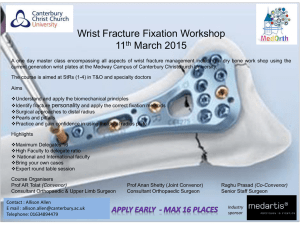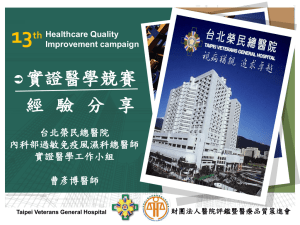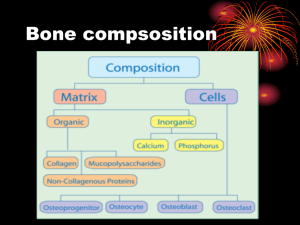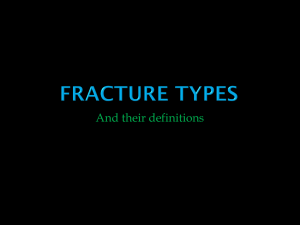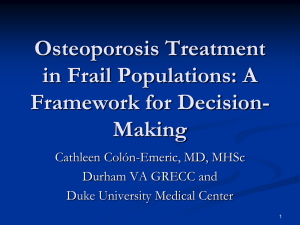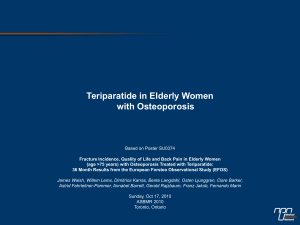FRAX® assessment of men treated with androgen deprivation
advertisement
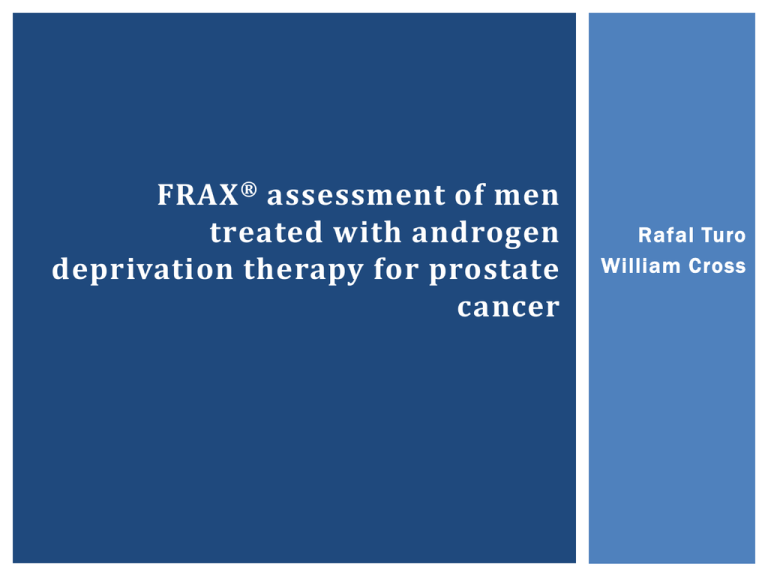
FRAX ® assessment of men treated with androgen deprivation therapy for prostate cancer Rafal Turo William Cross BONE HEALTH IN PROSTATE CANCER Prostate Cancer Bone metastases Pain Pathological fracture Spinal cord compression Palliative therapy (EBRT/Surgery) Androgen Deprivation Hormone therapy Treatment induced osteoporosis Fractures Pain Aim of this study was to estimate using the WHO FRAX tool the fracture risk in men treated with ADT for prostate cancer THE WHO FRAX TOOL Add screen shot METHODS AND RESULTS Methods Prospectively evaluated 90 men treated with ADT for prostate cancer Fracture risk estimated using WHO FRAX online tool Results Mean age 76.2 years (range: 56 -90) Bone metastases were present in 46% 6.7% had a history of a fracture 11% were smokers 10-year hip fracture risk by FRAX (%) The 3% hip fracture risk threshold for preventative treatment was exceeded by 66.7% of men The treatment threshold was exceeded by: 23.8% of those younger than 70 years 63.9% of those 70 to 79 years old 97 % of those 80 years old or older >3% risk Age (years) 10-year hip fracture risk by FRAX (%) The 3% hip fracture risk threshold for preventative treatment was exceeded by 10% of men >3% risk Age (years) CONCLUSIONS In this cohort of men the WHO FRAX ® calculated risk of fracture was clinically significant National guidelines are required for bone health assessment and prophylactic therapy in men with prostate cancer managed with androgen deprivation therapy WA D H WA , V. K . , W E S T O N , R . , & PA R R , N . J . ( 2 0 0 9 ) . F R E Q U E N C Y O F Z O L E D R O N I C AC I D T O P R E V E N T F U R T H E R B O N E LO S S I N O S T E O P O R O T I C PAT I E N T S U N D E R G O I N G A N D R O G E N D E P R I VAT I O N T H E R A P Y F O R P R O S TAT E C A N C E R B J U I N T E R N AT I O NA L FRACTURE INCIDENCE ON ADT 5 years after diagnosis of prostate cancer, 19.4 % of those who received ADT had a fracture, as compared with 12.6 % of those not receiving ADT (n=50613) S h a h i n i a n , V. B . , e t a l . , R i s k o f f r a c t u r e a f t e r a n d r o g e n d e p r i v a t i o n f o r p r o s t a t e c a n c e r. N E n g l J Med, 2005. 352(2): p. 154-64. Reported a fracture incidence of 28% after 7 years ADT (n=26) D a n i e l l , H . W. , e t a l . , P r o g r e s s i v e o s t e o p o r o s i s d u r i n g a n d r o g e n d e p r i v a t i o n t h e r a p y f o r p r o s t a t e c a n c e r. J U r o l , 2 0 0 0 . 1 6 3 ( 1 ) : p . 1 8 1 - 6 . BONE HEALTH CLINIC PATHWAY Osteoporosis ALL patients Non-pharmacological management ALL patients Clinical evaluation -prevention of falls through weight bearing exercise and home safety counseling - smoking cessation - avoidance of excess alcohol - adequate oral intake of Ca and vit D -medical history to look for risk factors and secondary causes of osteoporosis - Measurement of 25hydroxyvtamin D so that the level can be increased to 30ng/ml - FRAX risk calculation HIGH RISK patients: DEXA scan Treatment of osteoporosis: - Alendronate - Pamidronate - Zolendronic acid - Denusomab Osteopenia Repeat BMD after 6 to 12 months Normal BMD Repet BMD after 2 years
